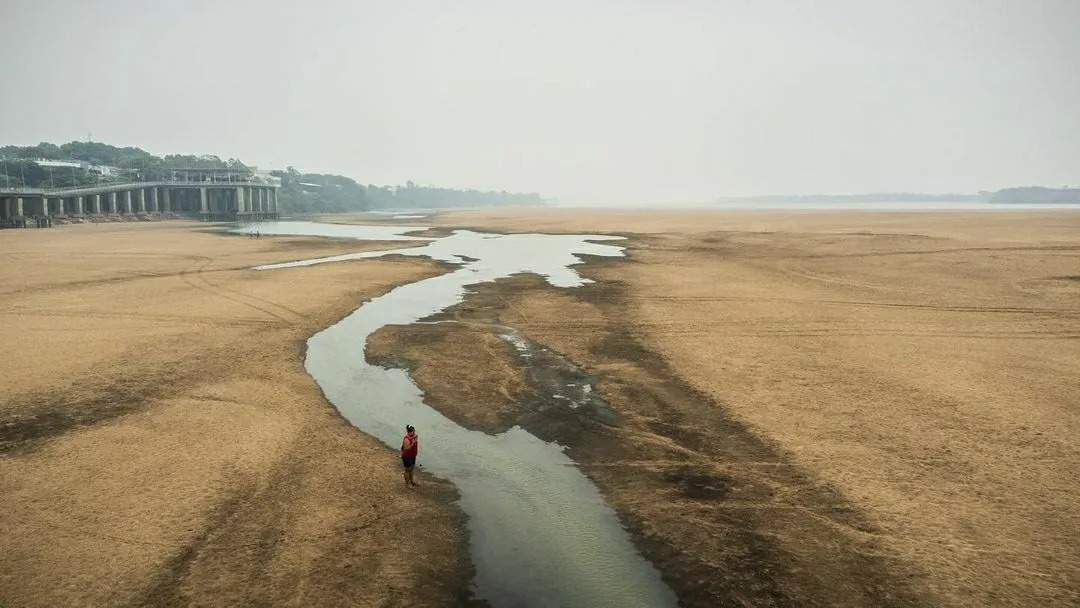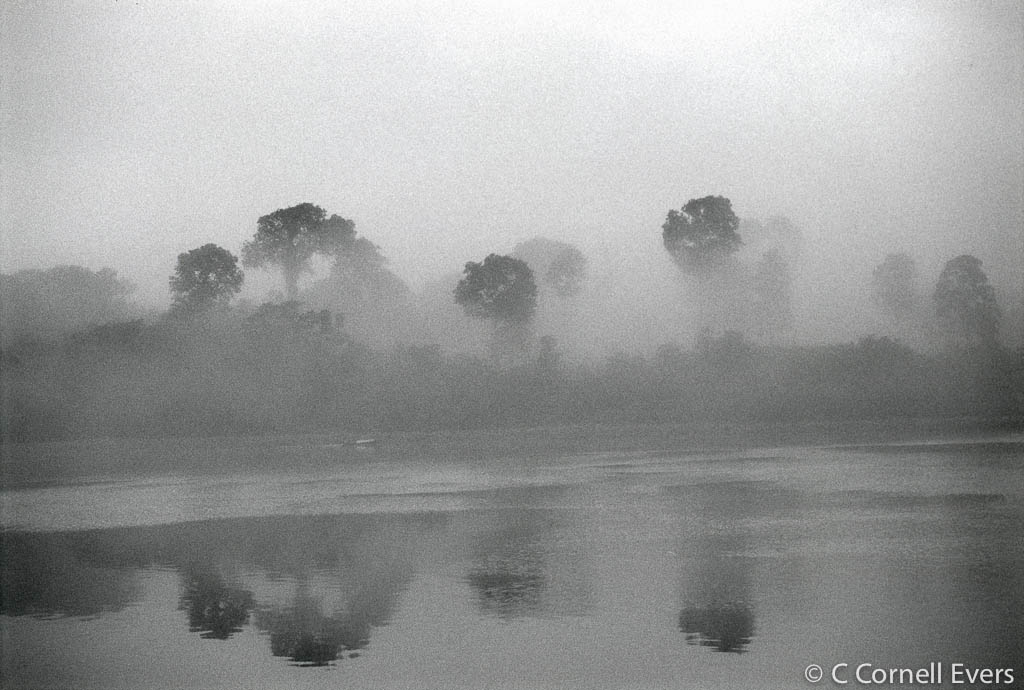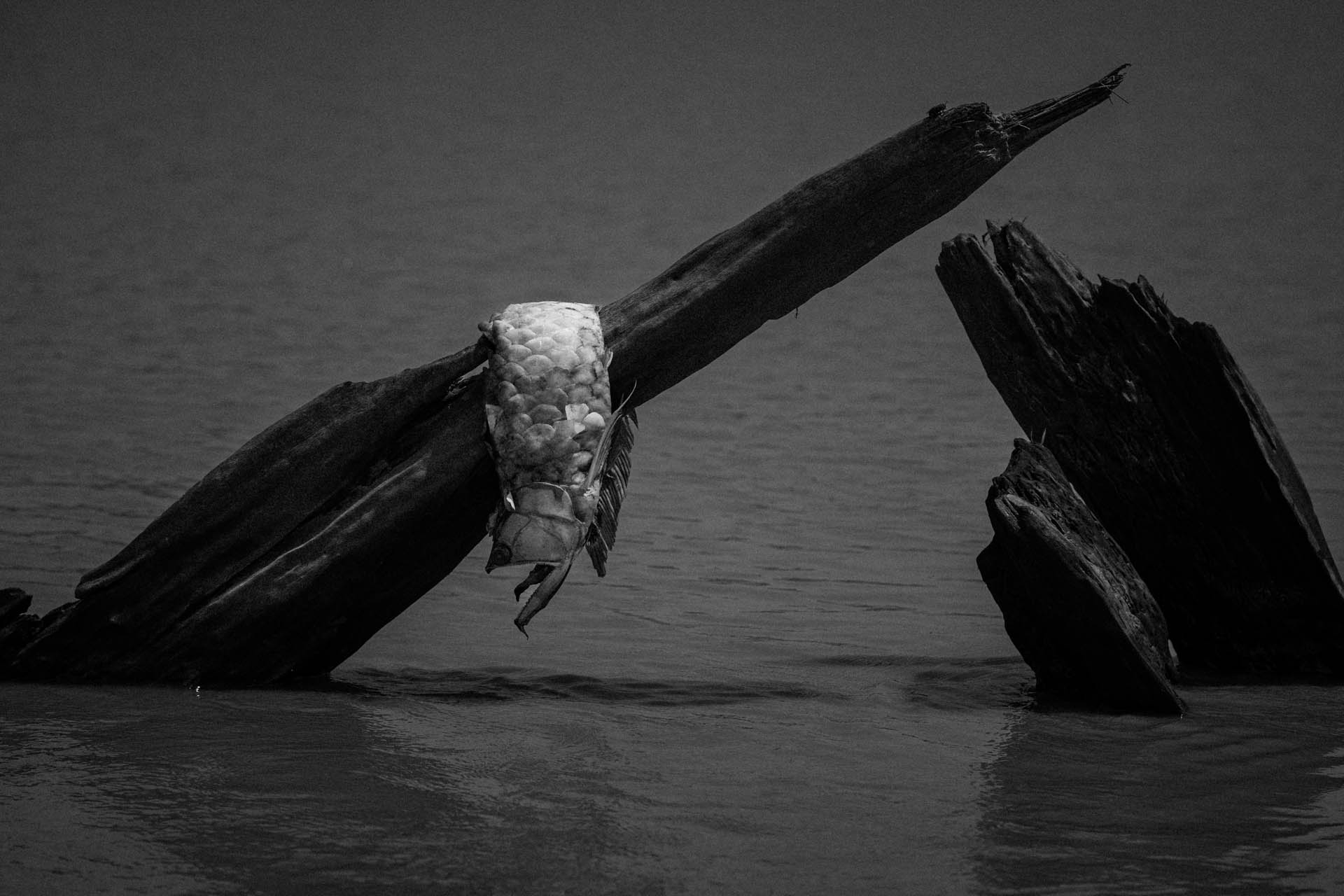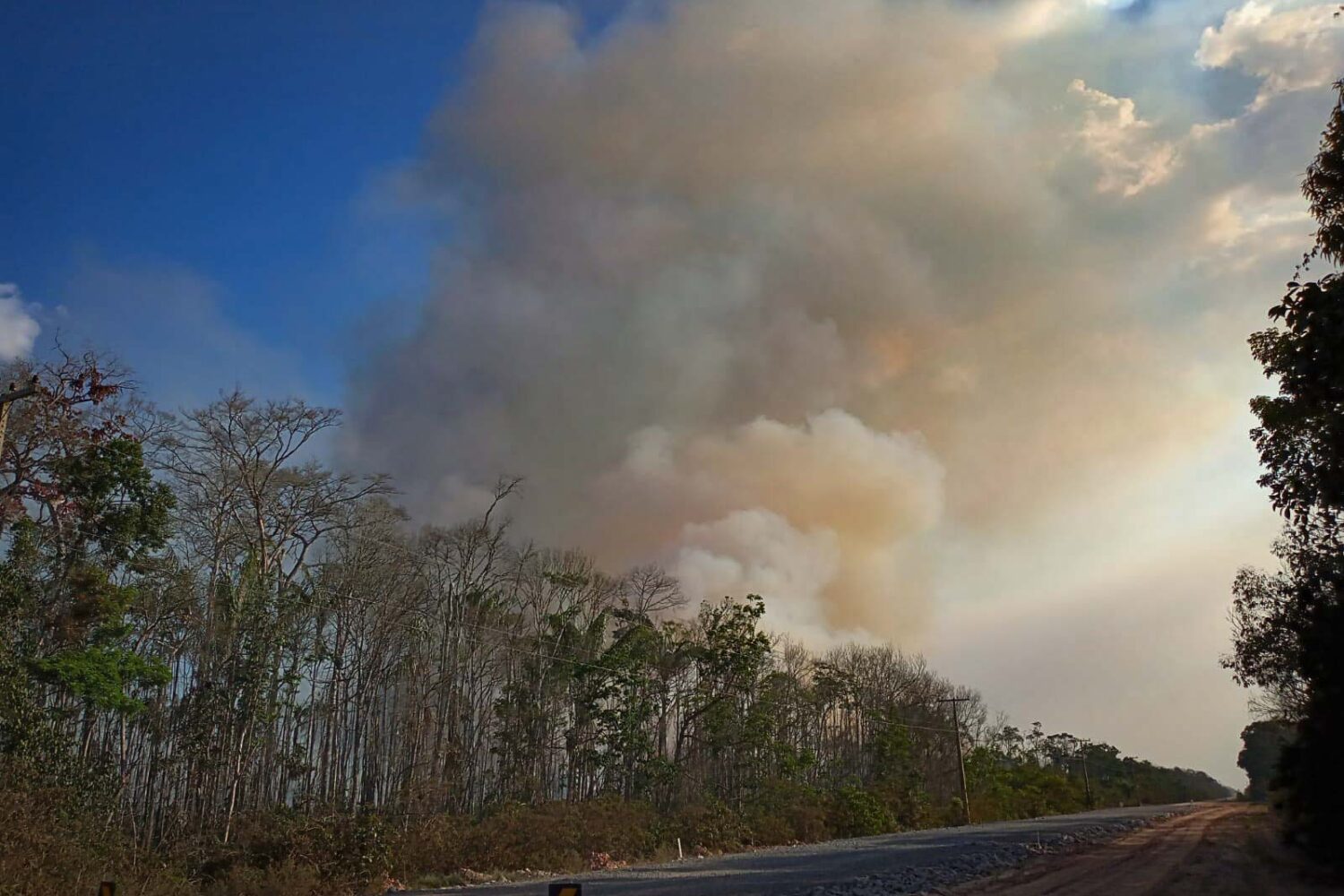Representing six percent of the world’s population, indigenous peoples are custodians of eighty percent of the Earth’s biodiversity. Despite numerous challenges, they preserve their cultures but remain vulnerable to the health impacts of climate change.
![]()
Bizhiki: Powwow, Electronics and the Breathtaking Truthfulness of Living with the Elements
The debut album Unbound by the trio Bizhiki effortlessly blends the powwow chants of North American indigenous peoples with electronic elements to create a unique form of musical expression.
Unbound opens with a delicate, wavering chord, accompanied after a while by a warm, evocative voice. This represents a musical tradition that has echoed through the northern river region for thousands of years, telling stories of life with the elements: earth, water, wind and fire.
The music that follows evolves as a dialogue of mutual respect between the ancient tradition of powwow singing and contemporary musical influences.
A powwow is a cultural gathering or ceremony traditionally held by the indigenous peoples of North America. During a powwow, people gather to dance, sing, and participate in religious and other rituals. It is often an opportunity for storytelling, arts and crafts, and demonstrations of traditional clothing and dance styles.
On Unbound, powwow-style singing is interwoven with synthesized vocal modulation, and hand drumming is accented with electronic samples and beats. All this ensures that the harmonies and resonances are culturally and musically rich and balanced.
Geographically, Bizhiki is primarily a Wisconsin-based project, born out of the collaboration of Dylan Jennings, Joe Rainey, and multi-instrumentalist Sean Carey (S. Carey), who has been a valuable addition to the Bon Iver family for years.
Dylan Jennings, also known as “Bizhikiins” (“Little Buffalo”), grew up singing in the powwow tradition near the Lac Du Flambeau and Lac Courte Oreilles reservations in central Wisconsin. He currently resides on the Bad River Reservation on the shores of Lake Superior in northern Wisconsin. His adopted brother, Joe Rainey, is a Red Lake Ojibwe from Minneapolis who now lives with his wife’s Oneida Nation on the shores of Lake Michigan. Rainey is an accomplished powwow singer and archivist who documents contemporary powwow music on his SoundCloud.
The beautiful title track, Unbound, represents Bizhiki’s unique cultural and musical blend. The song opens with an electronically processed hand drum thundering from afar, complemented by a melancholy piano chord. This sets the stage for a somber warning sung by Sean Carey: “Be calm when she speaks/she speaks the truth; unbound.” Carey found the lyrics in Joe Rainey’s notebook, written in the studio. Rainey explains in the album’s liner notes: “I wrote these lines in response to a series of tornadoes and hurricanes – Mother Nature’s wrath that affected us all. So much help was needed for the displaced people, so much pain.”
Our mothers cradle
Morning sunlight burst
Casting your curse
Punching us all where it hurts
Carey’s warning is backed by a powerful chorus sung by Dylan Jennings that is both poignant and breathtakingly true:
Be calm when she speaks
Be calm when she speaks
She speaks the truth; unbound
Indigenous Peoples: Key Partners in Climate Action
The United Nations’ Intergovernmental Panel on Climate Change (IPCC) recognizes indigenous peoples as key partners in the fight against climate change, highlighting their activism and significant contributions to global climate efforts.
Indigenous peoples make up about six percent of the world’s population, but are critical stewards of about eighty percent of the Earth’s remaining biodiversity. Despite facing significant political, economic and racial challenges, as well as severe health disparities, they have carefully preserved their cultures and languages. However, their deep connections to land and ecosystems make them particularly vulnerable to climate change, resulting in unique health risks that are often overlooked in mitigation and adaptation strategies.
The IPCC emphasizes the crucial role of indigenous peoples in addressing and coping with climate change. These communities have traditional knowledge and practices developed over millennia that are essential for sustainable resource management and biodiversity conservation. The IPCC notes that indigenous peoples are disproportionately affected by climate change, with their livelihoods, cultural identities and connections to the land increasingly threatened by environmental degradation. This situation exacerbates existing social and economic vulnerabilities, leading the IPCC to advocate for the inclusion of indigenous voices in climate discussions and to stress the importance of recognizing their rights and knowledge in policy-making.
Furthermore, the IPCC calls for the protection of indigenous land rights and equitable access to resources. The active participation of indigenous peoples in climate governance is considered essential for the development of effective mitigation and adaptation strategies. By integrating indigenous perspectives, the IPCC believes that global climate initiatives can become more holistic, culturally sensitive and effective.
Literature:
Analysing engagement with Indigenous Peoples in the Intergovernmental Panel on Climate Change’s Sixth Assessment Report – Rosario Carmona, Graeme Reed, Stefan Thorsell, Dalee Sambo Dorough, Joanna Petrasek MacDonald, Tunga Bhadra Rai & Gideon Abraham Sanago (Published: September 07, 2023)
Indigenous Peoples: Traditional knowledges, climate change, and health – Nicole Redvers , Paula Aubrey, Yuria Celidwen, Kyle Hill (Published: October 13, 2023)
![]()






